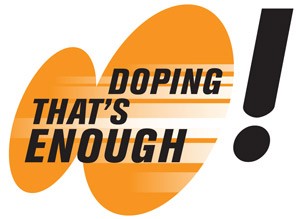Team to discuss regulation concerning new signing in coming days
 Following the news that the Astana team has signed Franco Pellizotti on a one year contract starting next season, the president of the Movement for a Credible Cycling (MPCC) Roger Legeay has emphasised that he expects that organisation’s rules to be followed.
Following the news that the Astana team has signed Franco Pellizotti on a one year contract starting next season, the president of the Movement for a Credible Cycling (MPCC) Roger Legeay has emphasised that he expects that organisation’s rules to be followed.
“Normally the position is clear. He was suspended from the 3rd of May 2010 until the 3 May 2012 [for biological passport issues –ed]. So he can ride the 3rd May 2014,” Legeay told VeloNation today, referring to the two year MPCC ban on signing riders who have served a lengthy suspension.
Legeay has said that he had been contacted by Pellizotti’s manager but that he wasn’t clear what their position would be. He said that he had been told it was a biological passport case, rather than a positive test, but said that there is no ambiguity in the rules. “The thing is quite simple: if the ban is for more than six months, a MPCC team can’t engage the rider.
“That is what the managers sign when they come to the MPCC. So we are in that situation. Now it is necessary that they accept the rule that they signed.”
The Astana team is yet to discuss the issue, but is aware of the rule and will consider it this week. An Astana team official told VeloNation today that the directeur sportif Giuseppe Martinelli “will discuss this with General manager Alexander Vinokourov in the next few days, and will then have a clearer understanding of what this is.”
Asked what would happen next, Legeay said that he will wait to see what the team does. “We have rules. Forty teams signed the rules and accepted them from January first of this year. Now we will see if they all follow it. Until now everybody has followed those rules, such as Ag2r and some positive riders. They have also observed the regulations about the engagement of some riders. Our next meeting of our board is the third of September, so we will see what has happened then.”
The Pellizotti issue could see the rider have to accept being sidelined for the first four months of next year, but Legeay is clear about the importance of teams sticking with the agreement. He’s perhaps mindful of the fact that several years ago the Liquigas team ignored the ethical agreement that was in place in signing Ivan Basso when he came back from a long ban; this action then caused other teams to abandon the same commitment and for a valuable anti-doping initiative to be lost.
“I think it is very important that the teams follow these rules and that the riders understand that they can’t make mistakes,” Legeay explains. “If they make a big mistake and they are suspended for more than six months, it is finished for them in cycling.”
The enforcement of the rules is also important for the MPCC to have credibility. As Legeay points out, many teams joined over the winter months, in the aftermath of USADA’s reasoned decision, as MPCC membership is seen positively by race organisers when they give out invites to their races.
But to reap the positives, those teams have to obey the requirements.
“You have two big rules in our regulations,” said Legeay, breaking down the essence of the requirements for teams. “The first is if you have two riders sanctioned, you are suspended for one week. With a team like Ag2r, they followed the rule 100 percent. It is very credible for the cycling.
“The second rule is to not engage riders who have been suspended for more than six months. If the teams follows that rule, in the few years all the riders will understand if they make a mistake, they will be out of the sport.”